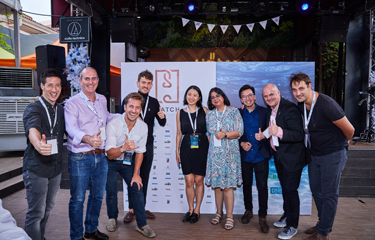Bord Iascaigh Mhara (BIM), the Irish state seafood development agency, is collaborating again with aquaculture technology fund HATCH to increase the potential of Irish aquaculture by cultivating firms with innovative ideas for the sector.
BIM is co-hosting an “accelerator program” – a series of workshops – in Ireland this October with HATCH aimed at young Irish firms with promising products and technology.
“The program is aimed at early-stage tech, fintech, and AI start-ups with ideas in aquaculture innovation,” according to a press release.
Since 2017, Hatch has functioned as an accelerator program for aquaculture-related start-ups. It recently expanded to add two business units focusing on innovation and investment. Hatch is controlled by an Irish holding company.
“The idea for an accelerator is to put start-ups on the path to growth and scale,” BIM Salmon and Shellfish Manager Richard Donnelly said. “We are at the birth of a new field of innovation in aquaculture. More people from different disciplines are getting involved, including those with backgrounds in artificial intelligence and other areas of tech. They’re beginning to think about systems and software that can transform aquaculture to help meet the growing demand for safe, nutritious, and sustainable seafood.”
Running from 11 to 22 October and backed by the European Union’s European Maritime and Fisheries Fund, the workshops will offer guidance from experts in management and venture capital, as well as aquaculture, in a bid to transform more Irish innovations into viable start-up businesses.
Irish firms that previously participated in the 2019 version of the accelerator program include health solutions provider Univiv and Aqualicense, a firm which advises on the aquaculture licensing process. Also in the 2019 program was Catchatrade, a digital platform for connecting seafood producers and traders.
Ireland’s status as an E.U. headquarters for numerous American tech firms as well as the sizeable financial services center in Dublin has created a talent pool in technology that may produce some new ideas in aquaculture, Donnelly said.







